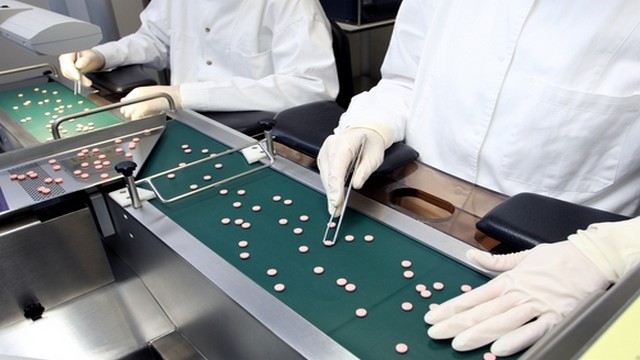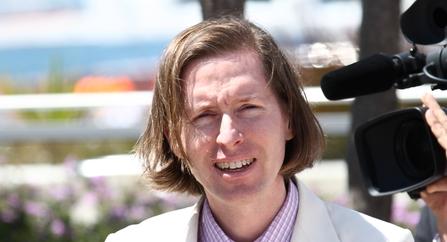Orion Jones
Managing Editor
Get smarter, faster, for success in the knowledge economy. Like us on https://t.co/6ZFWKpoKLi or visit https://t.co/d7r7dG2XOq
While we tend to think high-profile liars like Bernie Madoff are the rotten apples who spoil the bunch, but most good people are quite willing to cheat because they see their transgressions as small.
A gene that causes certain drugs to have adverse effects in patients has been identified by researchers. The discovery allows doctors to seek a new way to screen prior to administering medication.
A recent study suggests the number of people diagnosed with cancer will increase dramatically over the years. Those affected by the incurable disease could be determined by the economic status of where they live.
British researchers say that government banning on mind-altering drugs interferes with their experimental studies, which could lead to the discovery of new treatment options.
Studies reveal that eating dark chocolate on a daily basis could lower risks of cardiovascular issues. Yes that’s right, a guilty pleasure to feel healthy about.
A recent study indicates the evolution from promiscuity to monogamy among humans began in ancient times by the choices of low-ranked men and faithful women. Today humans continue to repeat this cycle, but the variables are slightly different.
Even if we develop technologies that preserve our lives forever, we should still decline the offer, says metaphysician Stephen Cave. Meaningful lives require a time limit, he argues.
Many of our cities still bear the scars from past centuries’ segregation policies. So new urban movements want to take advantage of urban population growth to make the city a better place.
Reflecting on creating a start up while providing for a family of four, Eric Farkas has created a list of priorities that kept his business plans on track while honoring the more important things.
Much to the chagrin of musicians and critics alike, the best music does not always make it to the top of the charts. The market, however, does have a tendency to create an equilibrium.
Critics say film director Wes Anderson has created the most distinct and identifiable cinematic world since Alfred Hitchcock. Anderson says its a team effort, led by long script-writing discussions.
Two of the Japan’s major electronics firms, Hitachi and Fujitsu, are working on a new biometrics system which reads the pattern of veins in your hand as a unique identifier.
Scientists at a Spanish university have created a material which could be painted on to concrete surfaces to reduce substantial amounts of air pollutants emitted into the atmosphere.
By controlling the delivery of the signaling substance acetylcholine to individual cells, a new chemical chip can regulate muscle function which may have stopped working for some reason.
Improved voice recognition software promises to revolutionize the way we interact with our mobile devices. Expect the technology to spread to your television, your car, your…
Researchers at a British university have turned to Mother Nature to maintain the current rate of progress in the computer industry, specifically a bacterium which contains iron oxide.
Space satellite engineers are taking advantage of the power, size and cost of modern consumer electronics to build a new generation of space exploration technology.
The Pentagon’s experimental research and development department, known as DARPA, has put a 100-year time frame on its goal of sending a manned mission to another star.
This is probably your last chance to see Venus cross directly in front of the sun as the event will not reoccur until 2117. Scientists want to gather data to find exoplanets similar to Earth.
Cosmologist Charley Lineweaver argues that the potential diversity of life in outer space requires a change in the definition of life, from biological boundaries to physical ones.
The word’s biggest science experiment has found a home. Well, two homes. Radio telescopes in South Africa and Australia will search for data from the early days of the Universe.
Several video game companies have released mind-reading headsets that let players control virtual objects. Psychiatrists say the technology could help improves patients’ mental health.
To solicit financial support from the public, something the government has made easier recently, it helps to create funding tiers that allow you to connect personally with your audience.
Facebook is working to release its own brand of smartphone. After a $16 billion payday at its IPO, the company has found it needs to justify its paycheck, especially as ad revenues decline.
Access to mobile computing, to allow employees to check email outside of working hours, increases productivity up to a point. After that it just burns people out and makes them unhappy.
A Russian Internet security firm has discovered what is perhaps the world’s most complicated computer virus ever. Given its complexity, a specific country may be behind the attacks.
New facial recognition technology that reads faces for emotional cues could be applied on a mass scale to better understand the general mood of entire populations, even whole nations.
Google’s chairman recently warned a British audience that the Web will remain vulnerable to cyber attacks for the next ten years. Education is essential to maintaining a free and open Internet.
Nation building is an “in and out” state of mind that is believed to create success with limited spending. Cultivating will take time, but has the potential to create honest dialogues among the U.S. and the other countries that would lead to missions being better carried out.
The human “capacity for culture” and globalization have the potential to turn us into one culture. With the growing desire to learn about different cultures and the increasing want to travel around the world—it is like “we are machines capable of greater cooperation, inventiveness and common good on Earth.”





























